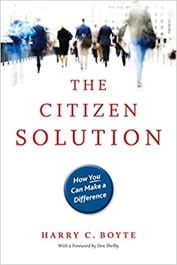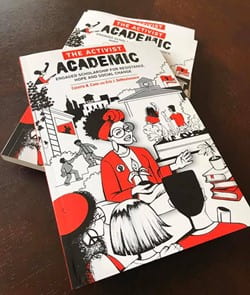
Cale Morrow continues this series on teaching and learning practices for leadership development. In this essay, Cale explores how educators can look to both contemporary leadership perspectives and theatre performance techniques to develop students’ social and emotional skills.
At the age of 17, I was asked to run a summer theatre camp for kids—nothing fancy, just a program offered to the public by a local dinner theatre in my hometown. We went about the usual theatre camp troupes, like line memorization tricks, costuming 101, and learning stage directions. We put on a short one act play by a first-time writer and everyone went home happy enough. From a theatre perspective, it was a 5/10 experience.
However, there was something other than basic theatre education that I observed while running this camp. I noticed that the participants began to perform better socially in the small group situations that the camp had created. They made friends quicker, spoke up more often when I asked a question, and developed a sense of confidence akin to someone ready to take on the world and whatever it had to throw at them. This change in the camp participants was my first experience with the positive impact of theatre techniques on a person’s social and emotional development. Continue reading “All the world’s a stage, and all of us are just leaders trying to connect upon it: Approaching contemporary leadership from a theatre performance perspective”



 Engaged scholarship has been defined in several ways. These definitions also lead to some distinct motivations as well. Although these definitions and motivations may vary as they come from different fields, it seems they have commonalities in their goals that is social transformation. In social transformation, ideas and concepts are not objects of study but constructed by human’s relationships (Allman, 1999). Hence, if the aim is to change the situation, this happens through the change of relationships.
Engaged scholarship has been defined in several ways. These definitions also lead to some distinct motivations as well. Although these definitions and motivations may vary as they come from different fields, it seems they have commonalities in their goals that is social transformation. In social transformation, ideas and concepts are not objects of study but constructed by human’s relationships (Allman, 1999). Hence, if the aim is to change the situation, this happens through the change of relationships.
 Though this book primarily calls for change in the U.S. educational system, the challenges outlined in
Though this book primarily calls for change in the U.S. educational system, the challenges outlined in  Graduate students and faculty from Kansas State University’s
Graduate students and faculty from Kansas State University’s 

